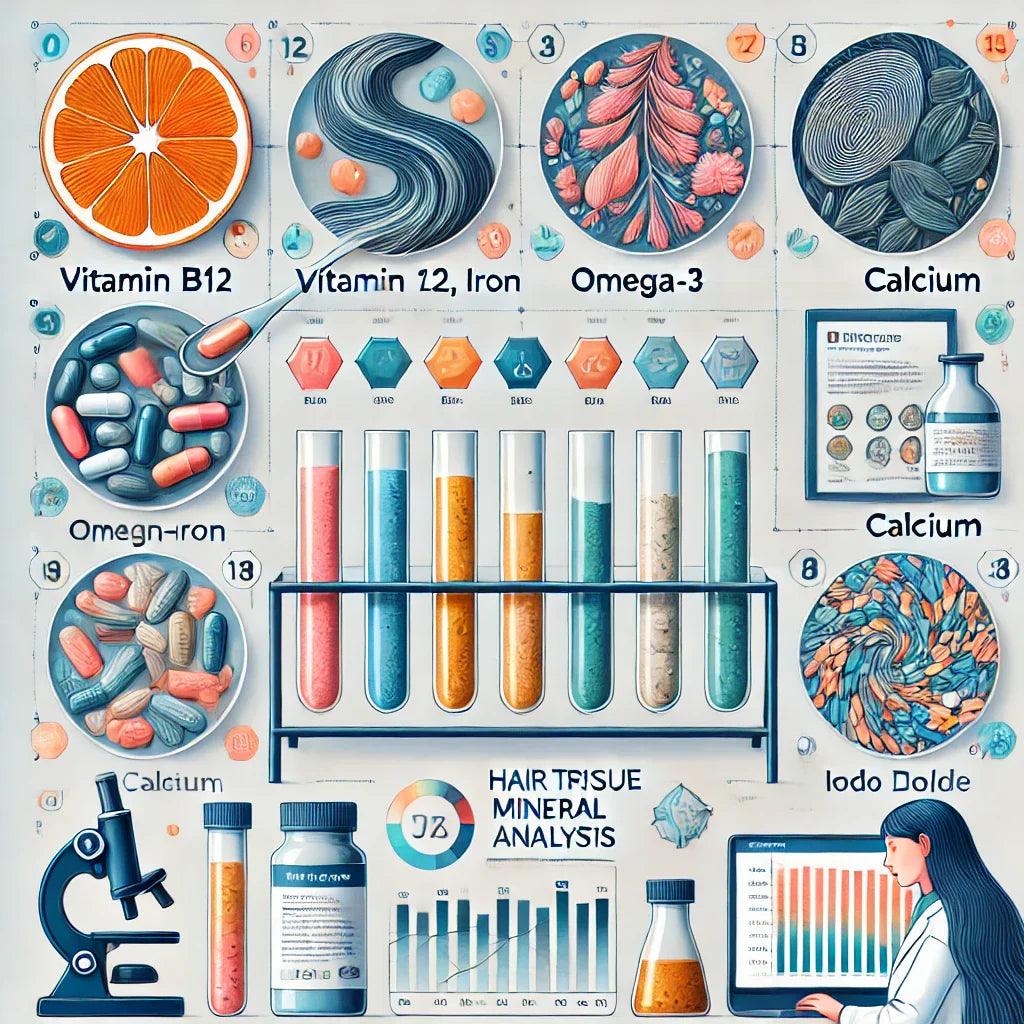
Supplementation in a Vegan Diet – The Key to Health and Balance
Share
Choosing a plant-based diet brings numerous health and environmental benefits. However, following a vegan diet requires careful attention to ensure the intake of all essential nutrients. Poorly balanced vegan diets can lead to serious health consequences due to nutritional deficiencies. Fortunately, the right supplementation can effectively prevent these issues when used correctly. In this article, we will explore the risks of deficiencies, essential supplements for vegans, the differences between natural and synthetic supplements, and a reliable method to assess nutritional status.
The Consequences of a Poorly Managed Vegan Diet
A well-balanced plant-based diet can be fully healthy and safe. However, a lack of nutritional awareness can result in severe deficiencies that impact overall well-being and long-term health.
Common Deficiencies in a Vegan Diet
- Vitamin B12 – A deficiency can lead to anaemia, nervous system impairment, and concentration issues.
- Iron – Insufficient intake may cause fatigue, paleness, and in extreme cases, anaemia.
- Omega-3 Fatty Acids (EPA & DHA) – Essential for brain and heart health, deficiency can affect cognitive functions.
- Calcium – Crucial for strong bones and teeth, low levels increase the risk of osteoporosis.
- Zinc – A deficiency weakens the immune system and may contribute to poor skin condition.
- Iodine – Essential for proper thyroid function; deficiency can lead to fatigue and hormonal imbalances.
- Protein – While plant-based protein sources exist, insufficient intake may result in muscle weakness and low energy levels.
Effective Supplementation for Vegans
To avoid these health risks, vegans should consider supplementing the following key nutrients:
- Vitamin B12 – Best in the form of methylcobalamin or cyanocobalamin.
- Iron – Ideally combined with vitamin C for enhanced absorption.
- Omega-3 Fatty Acids – Algal oil is a plant-based source of EPA and DHA.
- Calcium – Preferably in citrate form for better bioavailability.
- Zinc – Best absorbed in citrate or gluconate form.
- Iodine – Can be sourced from seaweed or iodised salt.
- Plant-Based Protein – Available in pea, rice, or hemp protein isolates.
Natural vs. Synthetic Supplements
Many people wonder whether to opt for natural or synthetic supplements. Both types have their pros and cons.
Natural Supplements
- Derived from plant, mineral, or animal sources.
- Often have better bioavailability (e.g., vitamin C from acerola is better absorbed than synthetic ascorbic acid).
- Typically more expensive than synthetic alternatives.
- May contain additional beneficial compounds like flavonoids or polyphenols.
Synthetic Supplements
- Laboratory-produced, often in pure chemical form.
- Can be more concentrated and stable.
- Generally more affordable.
- Some forms may be harder for the body to absorb (e.g., synthetic beta-carotene vs. natural beta-carotene).
How to Check for Nutritional Deficiencies?
One of the most reliable methods to assess nutritional status is a Hair Tissue Mineral Analysis (HTMA). This test provides valuable insight into mineral imbalances and heavy metal exposure, helping to tailor supplementation to individual needs.
https://mj-4u.com/products/hair-element-analysis-the-key-to-your-health
Conclusion
A vegan diet can be fully balanced and healthy, provided that essential nutrients are obtained through proper dietary sources and smart supplementation. Deficiencies can lead to severe health consequences, making regular monitoring and supplementation vital. Choosing between natural and synthetic supplements depends on personal preference, but prioritising bioavailability and quality is key.
Ensure optimal health by supporting your body with the right nutrients and using reliable testing methods to stay on top of your nutritional needs!
